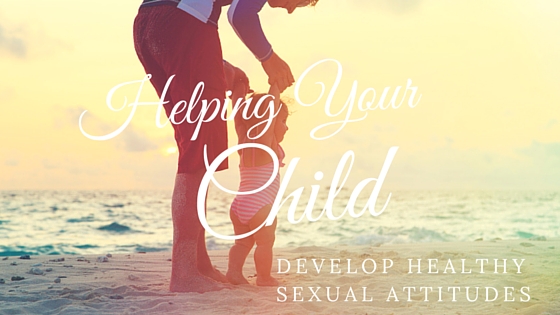When I saw the title of the article published by the on-line Meridian Magazine, I was shocked and horrified: “Helping your child choose heterosexuality.” Upon discovering it had been written by a licensed marriage and family therapist in Florida, giving it a facade of professional credibility, I was sick to my stomach. “Oh my gosh!” I practically shouted to no one in particular, “that’s something that would have come out of the Dark Ages of discredited reparative therapy approaches!”.
It didn’t take long before the wave – no a tsunami – of criticism swept across the internet. As the day went on and the backlash increased, the article got a new title, “Can I Help My Child Choose Heterosexuality?” That didn’t quell the uproar, and within hours, the piece was removed from the Meridian website and other professionals started publishing their thoughts. The article was characterized variously as “bad,” “dangerous,” “unethical,” “incorrect” and “uniformed.” My answer to her title question — “Can you help your child choose heterosexuality?” — is no … nor should you nor can you. But what you can help your child develop and hopefully choose are healthy sexual attitudes and values, healthy sexual relationships, and a healthy sense of self and empowerment around his or her sexuality. As a parent, you have an opportunity to influence and shape as your child’s ally, champion, mentor, and protector. I would like to add my voice to Dr. Kristy Money’s article where she talks about “Helping Our Children Be Themselves” and to Dr. Julie Hanks’ article that discussed the harmful messages contained in the Meridian article.
I would like to then talk about how YOU can help your child develop healthy sexual attitudes. I did learn something from the Meridian article: that we have a long way to go in understanding what healthy sexuality is and how to have conversations and dialogue about these challenging topics with our children. It’s an ongoing pursuit and conversation, not an arrival point. Sexuality is nuanced, complex, and fluid, and it expands, contracts and evolves throughout our lifetime. Sexuality is dynamic, not static. It’s also not just something we do, or a behavior, it’s who we are. It’s how we engage the world and how we express ourselves; it’s our creative force. Far too often, I see people trying to make sense of it by boxing it up and packaging it in overly simplistic terms, “either-or” scenarios or rigid rules.
So what does this mean for us as parents? It means confronting our own sexual “stuff” — examining our own sexual stories, biases, judgments, discomfort and fears and values so we can have meaningful dialogue with our children about sex. It means furthering our own sex education because I would venture the majority of us only had two or three conversations about sex growing up (if that) and/or we got most of our sex education from friends or movies. It means learning to talk to our kids about sex as a skill like learning how to cook, paint or play the piano and embracing the learning curve.
In his marvelous book, “For Goodness Sex,” Al Vernaccio writes: “The best conversations about values and sexuality are triggered naturally. A news story on TV, a song on the radio, an ad in a magazine, a Facebook status — all can be used to start a conversation. Dialogue about sexual values is more successful when it flows in and out of conversation than when we create separate moments about serious talks.”
The website Advocates For Youth.org states: “Adolescents who have repeated communications about sex, sexuality, and development with their parents, are more likely to have an open and closer relationships with them, in addition to being more likely to talk with their parents in the future about sex issues than adolescents whose sexual communication with their parents included less repetition”
The article continues: “In studies, young people who reported feeling a lack of parental warmth, love, or caring were also more likely to report emotional distress, lower self esteem, school problems, drug use, and sexual risk behaviors. Youth whose parents are open, responsive, comfortable, and confident in discussions about sex and related issues participate less often in sexual risk behavior, suggesting that the quality of communication influences the message adolescents receive about sex.” Talking to our children about sex is so much more than “the birds and the bees” or intercourse. It includes healthy relationships, respect, health and hygiene, identity, anatomy, gender and sexual orientation, body image, consent, and more.
There are many things we don’t get to choose as a parent such as our children’s gender and sexual orientation, but here are some of the things we do get to choose:. we can choose to empower our children about sexuality. We can choose to address our discomfort around sexuality. Getting more educated on topics of sexuality and development is our choice. We can choose to love our children for who they are and help them become the best they can be no matter their sexual orientation. We can choose to have difficult conversations that are important to their overall development: emotional, mental, physical and spiritual. Can you help your child develop healthy sexual attitudes? The answer is yes. You can help them develop healthy sexual attitudes by CHOOSING to developing your own.
____________________________________________________________________________________________________________________________________
 Kristin is one of the dynamic sister duo known as “The Sex Girls.” She is Co-Author of published book, “Real Intimacy: A Couple’sGuide to Genuine, Healthy Sexuality” and working on her second book, “YES! You can talk to your kids about sex.” Kristin is a therapist who specializes in sex and intimacy with a goal and mission to start having real conversations about sex and intimacy in our culture so we can have healthier and happier relationships. She accomplishes this in a variety of ways through workshops, therapy, coaching, radio and television.
Kristin is one of the dynamic sister duo known as “The Sex Girls.” She is Co-Author of published book, “Real Intimacy: A Couple’sGuide to Genuine, Healthy Sexuality” and working on her second book, “YES! You can talk to your kids about sex.” Kristin is a therapist who specializes in sex and intimacy with a goal and mission to start having real conversations about sex and intimacy in our culture so we can have healthier and happier relationships. She accomplishes this in a variety of ways through workshops, therapy, coaching, radio and television.
Facebook: /kristinbhodson
Twitter: @kristinbhodson


